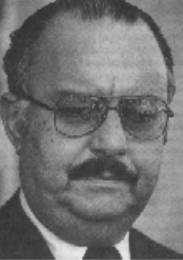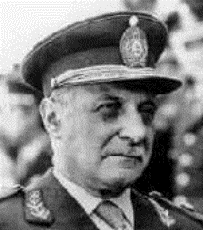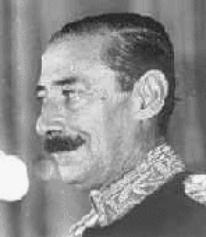
|
Anastasio Somoza
|

|
General Roberto Viola
|
 |
General Jorge Videla |
1980s, Nicaragua: Reagan's Contra Terrorists
By Jim Huck
In 1979, the Sandinista revolution ousted the brutal U.S.-backed Somoza dictatorship in Nicaragua. In 1981, Reagan authorized CIA director, William Casey, to plan the Sandinistas' overthrow. Casey arranged with Argentine military officials, known for repression, death squads and training Guatemala's military, to train the Contras, using U.S. weapons and money. In November, Reagan authorized the CIA to build a paramilitary force to overthrow the Sandinista government. The Nicaraguan Democratic Front was set up. Reagan referred to the Contras as "the moral equivalent of our Founding Fathers." The CIA received $19.5 million to begin a full-scale operation. Reagan authorized the CIA "to finance the war primarily through non-Americans" and "appropriate foreign governments." The CIA approved $50 million in training programs.
A month after their inception, Reagan said the Contras "would march into Managua by Christmas [1983]." Operation Christmas was a failure and the Contras resorted to hit-and-run tactics, aimed primarily at women and children. Horatio Arce, chief of Contra intelligence, stated: "We attack a lot of schools [and] health centers. We tried to make it so that the Nicaraguan government cannot provide social services for the peasants." White House spokesperson Charles Redman said Contra attacks on agricultural collectives were "legitimate and proper."
In 1983, the CIA circulated assassination manuals to "neutralize" Nicaraguan civilians. [See "Psychological Operations in Guerilla Warfare" at <www.parascope.com/ds/1096/psyops.htm>]
The U.S. mined five Nicaraguan ports, damaging several European ships. On May 1, 1984, Nicaragua brought a lawsuit to the World Court. Ironically, Reagan proclaimed it "Law Day 1984" saying that without law and liberty there would be "chaos and disorder." The U.S. would not abide by World Court rulings. One vote (16 to 0), condemned the U.S. A second vote (12 to 3), said the U.S. must stop the minings. A third (14 to 1), demanded compensation to Nicaragua for damages. A UN Security Council resolution stating "all states must observe international law" was vetoed by the U.S. Only the U.S., El Salvador and Britain voted against a General Assembly resolution condemning the U.S. Another resolution opposed a U.S. economic boycott of Nicaragua (91 to 6), so the U.S. imposed its own boycott in 1985.
The U.S. disrupted Nicaragua's elections in 1984. For the first time in Nicaragua's history, free elections took place, monitored by human rights delegations. Minor parties held demonstrations without fear of reprisal. The Sandinista government gave $321,000 to each opposition party campaign. All candidates received free TV and radio time.
The White House wanted Contra leader Arturo Cruz as its candidate. He refused, knowing that vehement opposition to the Contras would embarrass him and the U.S. The Sandin-istas received 69.2%, and more left-wing parties received another 3.8%.
In 1984, Congress passed the Boland Amendment barring U.S. actions to overthrow the Sandinistas. Oliver North claimed that this law made no reference to any "agency or entity of intelligence activities." The CIA then went to other extremes to get arms to the Contras. The White House could only get Congress to appropriate money for humanitarian aid. "Humanitarian" aid became helicopters, jeeps and trucks (if they carried first aid supplies) and boots and helmets (since they protected human beings). A senior White House spokesperson stated: "If a truck carries 1,000 pounds of food and 500 guns, that will be fine." The National Security Council resorted to illegal and covert methods to allocate funds for arming the Contras.
In 1986, a cargo plane carrying CIA weapons was shot down over Nicaragua. It was the same plane flown by convicted cocaine dealer Barry Seal. The plane's logs indicated it had flown from Colombia, home of the Medellin and Cali drug cartels.
In 1988, the U.S. and Nicaragua finally agreed on a cease fire which prohibited further aid to the Contras. Aid in resettlement and repatriation was to be supplied by "neutral organizations." Congress, however, appropriated more Contra aid administered by the State department and USAID. The UN Secretary-General condemned the U.S., but they just ignored him.
Source: From "Imperialism in Central America (1980s and 1990s)," in Art of Deception.
www. thegrid.net/I/i522633/camerica. htm#dirtywar
For more details, read the Senate Committee Report on Drugs, Law Enforcement and Foreign Policy chaired by Sen. John F. Kerry www.webcom. com/pinknoiz/covert/contracoke.html
The CIA arranged with Argentine Generals, Roberto Viola and Jorge Videla, for veteran trainers from their dirty war to remold remnants of Dictator Anastasio Somoza's dreaded National Guard into what became known as the Contras.
Source: www.drugwar.com/setco.htm

|
Anastasio Somoza
|

|
General Roberto Viola
|
 |
General Jorge Videla |